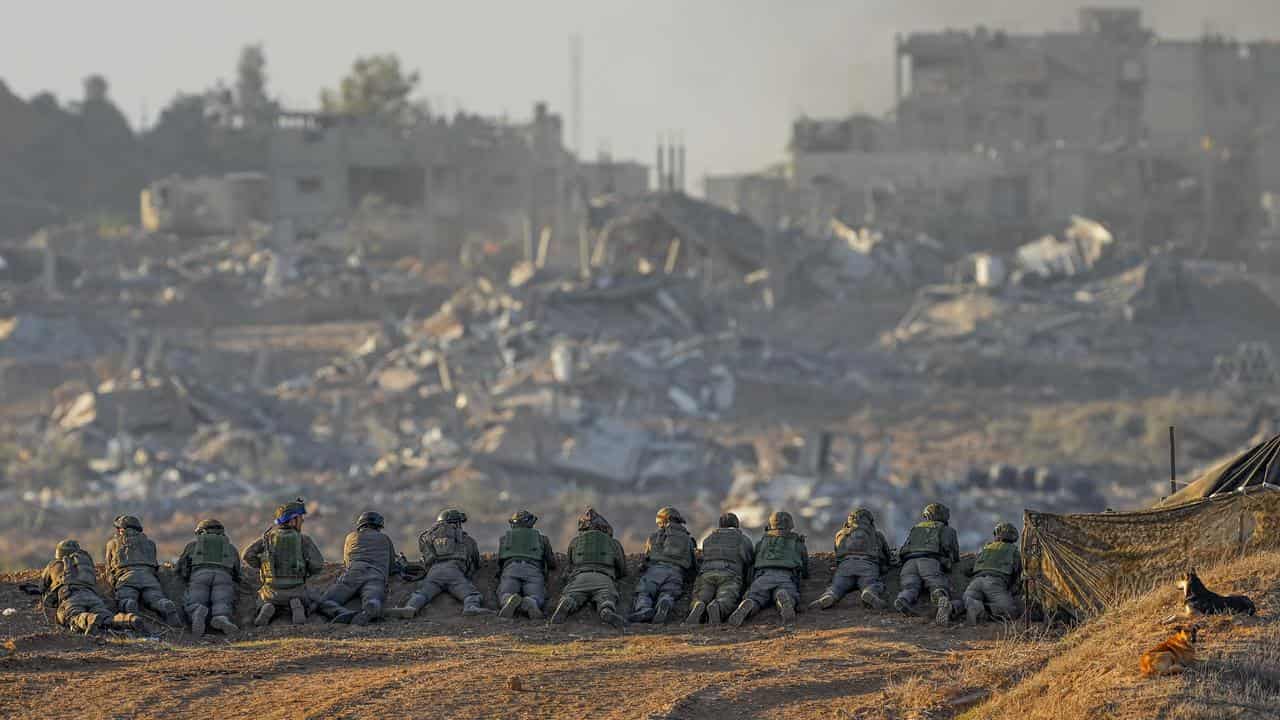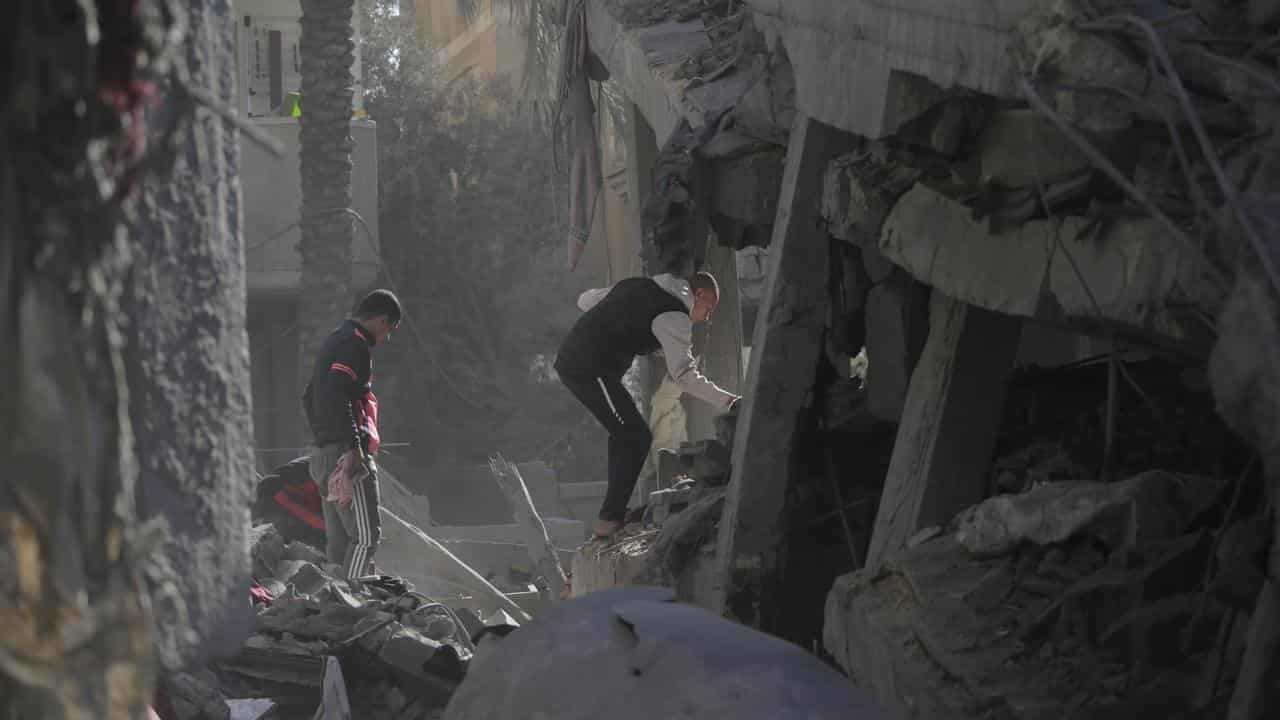
Hunger is worsening among Palestinians in the besieged Gaza strip, aid agencies say, as the United Nations General Assembly prepares to vote on an immediate humanitarian ceasefire in the two-month-old conflict between Israel and Hamas.
Hundreds more civilians have died in Israel's assault on Gaza since the US on Friday vetoed a Security Council resolution calling for a ceasefire.
Most of Gaza's 2.3 million people have been driven from their homes and residents say it is impossible to find refuge or food in the densely populated coastal enclave. The UN World Food Program has said half of the population is starving.
"Hunger stalks everyone," UNRWA, the UN body responsible for Palestinian refugees, said on X.
Gazans said people forced to flee repeatedly were dying of hunger and cold as well as the bombardments, describing looting of aid trucks and sky high prices.
Israel says its instructions to people to move are among measures it is taking to protect civilians as it tries to root out Hamas militants who killed 1,200 people and took 240 hostage in an October 7 cross-border attack on Israel, according to Israeli tallies. About 100 hostages have since been freed.
Israel's retaliatory assault has killed 18,205 people and wounded nearly 50,000, according to the Gaza health ministry.
The 193-member General Assembly is likely on Tuesday to pass a draft resolution that mirrors the language of one that was blocked by the United States in the 15-member Security Council last week.
The vote was due a day after 12 Security Council envoys visited the Egyptian side of the Rafah border crossing with Gaza, the only place where limited humanitarian aid and fuel have entered.

US President Joe Biden, who has weathered intense criticism for his support of Israel's response to the October 7 attacks, told a White House celebration on Monday for the Jewish holiday of Hannukah that his commitment to Israel is "unshakeable."
However, State Department spokesperson Matthew Miller told reporters that Israel was no exception to US policy that any country receiving its weapons must comply with the laws of war.
"We are monitoring everything that happens in this conflict," Miller said. "We are engaged in conversations with the Israeli government."
Washington found images circulating on social media showing Palestinian men detained in Gaza in their underwear "deeply disturbing" and asked Israel to clarify the circumstances around the photographs, Miller added. Israel has said the men were stripped to make sure they were not hiding explosives or weapons.
The White House also said on Monday it was concerned about reports Israel used US-supplied white phosphorus munitions in an October attack in southern Lebanon and was seeking more information. The munitions, which can be legally used on battlefields to make smoke screens among other uses, can cause serious burns.
Israel said an allegation by Human Rights Watch that it uses white phosphorus munitions in Gaza and Lebanon was "unequivocally false".
UN officials say 1.9 million people - 85 per cent of Gaza's population - are displaced and describe the conditions in the southern areas where they have concentrated as hellish.
After the collapse of a week-long ceasefire on December 1, Israel began a ground offensive in the south and has since pushed from the east into the heart of Khan Younis city.
On Monday, militants and residents said fighters were preventing Israeli tanks moving farther west and clashing with Israeli forces in northern Gaza, where Israel had said its mission was largely complete.
Israel said dozens of Hamas fighters had surrendered and urged others to join them.
Residents reported exchanges of fire near the coastal road and Hamas media said fighters foiled an attempt by Israeli naval forces to make a landing of forces offshore.
Israeli bombing continued into the night on Monday, residents and health officials said. Medics said Israeli air strikes killed at least 15 people in separate strikes in the central and southern Gaza strip.




